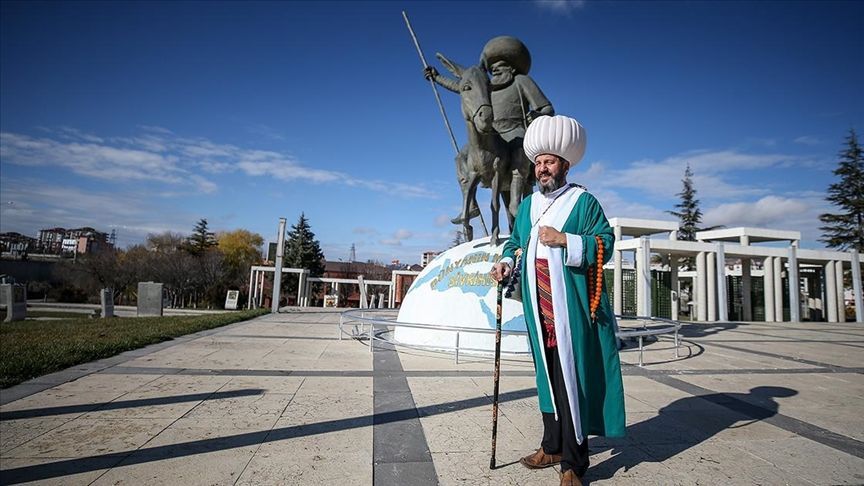Who is Nasreddin Hodja? Best Nasreddin Hodja Tales
Who is Nasreddin Hodja? Best Nasreddin Hodja Tales

Nasreddin Hodja, known as the master of satire in Turkey, is one of the most famous characters in Turkish folk stories and jokes. The main reason for his being beloved like a folk hero is the emotion and subtlety found in his stories and jokes. Nasreddin Hodja tales, with their witty words, entertain on one hand and provoke thought on the other. His fame has spread worldwide, and even today, Nasreddin Hodja tales are passed down from mouth to mouth. These stories provide guidance, direct towards the good, and never hold back in their words, making them appealing to many. Especially loved by children, the words in these stories have become idioms and proverbs over time, firmly rooted in our language.
So, who is Nasreddin Hodja, who is so important in Turkish culture and has gained worldwide fame? What are the messages in Nasreddin Hodja tales? Let's delve into all the questions you have about the famous satire master.
Who is Nasreddin Hodja?
Nasreddin Hodja was born in 605 (1208) in the village of Hortu in the Sivrihisar district of Eskisehir, Turkey. After receiving a medrese education in Sivrihisar, he returned to his village and took on the role of the village imam following his father's death. In 1237, he moved to Aksehir and taught lessons in a medrese there. He continued his studies in Islamic theology and joined the important Sufis Seyyid Haci Ibrahim and Seyyid Mahmut Hayrani. As a result of these studies, he adopted the name Nasuriddin Hace, which eventually became Nasreddin Hodja. Nasrettin Hodja passed away in Aksehir in 683 (1284), and unfortunately, there is not much information available about his life. Despite the limited details about his life, we know him through countless jokes and stories that have circulated from mouth to mouth, and even today, Nasreddin Hodja books, especially loved by children, are considered educational, thought-provoking, and instructive books. His stories are generally related to real-life events and are often connected to incidents that happened among the people. His stories are characterized by praise, love, satire, and mockery.
The Personality of Nasreddin Hodja
Traces of Turkish culture and tradition, social criticism, and practical intelligence found in his works provide clues about Nasreddin Hodja's personality traits. The style in his jokes and stories showcases his versatile sense of humor and quick-witted personality. He encourages people to do good, stand by their beliefs, avoid hurting others, and even make fun of himself when necessary, all in a unique way. In most of his works, he appears as an ordinary villager who goes to chop wood or works in his field. At times, he assumes roles like a teacher, wise person, or envoy. This allows him to address the issues he talks about in a simple style that the common people can understand. Nasreddin Hodja, who understands society and family structure very well, has observed shortcomings in family, friendship, neighborly relations, and administrative processes. In his works, he often addresses these issues with meaningful humor and witty words, encouraging people to think.
General Characteristics of Nasreddin Hodja Tales
Nasreddin Hodja tales cover a wide geographical area from the East to the West. The general characteristics of these tales are that they are humorous, surprising, educational, and instructive. His sense of humor in his works is evident through wordplay, making fun of death, amusing situations, exaggeration, surprising behavior, innuendo, and satire. Nasreddin Hodja tales that have religious themes are usually related to beliefs, attitudes, and behaviors. Those with themes from social life focus on administrative processes, everyday events, morality, and manners. As a character in his jokes and stories, Hodja is fatherly, rational, cheerful, and enjoys speaking in a contrarian manner. He responds to excessive behavior with its opposite. His response often highlights the contradiction people face. The characters in Nasreddin Hodja tales are generally from the common people, have a religious aspect, hold positions of authority, and are directly related to Hodja, such as his wife and his donkey. The most common characters we encounter in Nasreddin Hodja tales are his wife, neighbor, donkey, and judge.
Most Well-Known Nasreddin Hodja Tales
General Characteristics of Nasreddin Hodja Tales
The subjects in Nasreddin Hodja tales span a wide geography from east to west. The general characteristics of these tales are that they are humorous, surprising, educational, and instructive. His sense of humor in his works includes wordplay, poking fun at death, amusing situations, exaggeration, surprising behavior, innuendo, and satire. Nasreddin Hodja tales draw their themes from both religious and social life. Those with religious themes are usually related to beliefs, attitudes, and behaviors, while those drawn from social life focus on administrative processes, everyday events, morality, and manners. As a character in these tales, Hodja is fatherly, sensible, cheerful, and enjoys speaking in a contrarian manner. He responds to excessive behavior with its opposite, creating a humorous contradiction. The characters in Nasreddin Hodja tales are generally from the common people, have a religious aspect, hold positions of authority, and are directly related to Hodja, such as his wife and his donkey. The most common characters we encounter in Nasreddin Hodja tales are his wife, neighbor, donkey, and judge.
The answer to the question, "What comes to mind when you think of Nasreddin Hodja?" is the tales that have spread among the people through oral tradition. Although Nasreddin Hodja has about 300 tales attributed to him, some Nasreddin Hodja books consist of compilations of over 500 tales. His popularity as a folk hero has led to the attribution of works that do not belong to him. Among the most well-known Nasreddin Hodja tales are "Stealing the Whistle from the One Who Pays," "Sprinkling Flour on the Rope," "Searching for the Neighbor's Donkey," "The Melting Butter," and many more. Over time, many phrases from these tales have become idioms and proverbs in our language. Some of the most well-known ones include "He who pays the piper calls the tune," "Cutting the branch you're sitting on," "The blanket is gone, the fight is over," "Eat my fur," "Rabbit's water's water," "Let friends see in the market," "One's mouth is not a sack" and many others. Let's take a closer look at the most well-known Nasreddin Hodja tales.
Stealing the Whistle from the One Who Pays
As Nasreddin Hodja goes to the market, children surround him, asking for whistles. They all want Hodja to give them one, but none of them offer any money. Hodja dismisses them with a casual "Sure." However, only one of them extends their money and asks Hodja for a whistle. When Hodja returns from the market in the evening, the children surround him again and ask for their whistles. Hodja takes out a single whistle from his pocket and hands it to the child who paid. When the other children start yelling, "Where are our whistles?" Nasreddin Hodja laughs and says, "The one who pays gets the whistle."
Sprinkling Flour on the Rope
Nasreddin Hodja's neighbor knocks on Hodja's door and asks for a rope. Hodja replies, "Sorry, neighbor, my wife has sprinkled flour on it, so I can't give it to you." The neighbor is puzzled and says, "Oh Hodja, I just heard that ropes can get sprinkled with flour, can that really happen?" To which Nasreddin Hodja responds, "What's the big deal? If my heart isn't in giving it to you, it can get sprinkled with flour just fine."
One's Mouth is Not a Sack
One day, Hodja's neighbor's donkey goes missing. Everyone disperses in search of it, and Hodja joins the search, singing songs as he goes. Witnessing this, the villagers ask Hodja in amazement, "Hodja, what are you doing?" Nasreddin Hodja's response is prompt: "One's mouth is not a sack, you call the donkey by singing."
The Cauldron Gave Birth
One day, Hodja borrows a cauldron from his neighbor. When he returns it, he secretly places a smaller cauldron inside. Curious, the neighbor asks what this is all about, and Hodja replies, "While it was with us, the cauldron gave birth." The neighbor is delighted by the news. However, when weeks and months pass, and Hodja doesn't return the cauldron, the neighbor visits Hodja's house and asks, "Hodja, what happened to our cauldron?" Hodja responds, "I didn't know how to say it, but the cauldron has given you a lifetime."
If you're looking for educational and thought-provoking books for your children, you can choose Nasreddin Hodja's tales and jokes.




